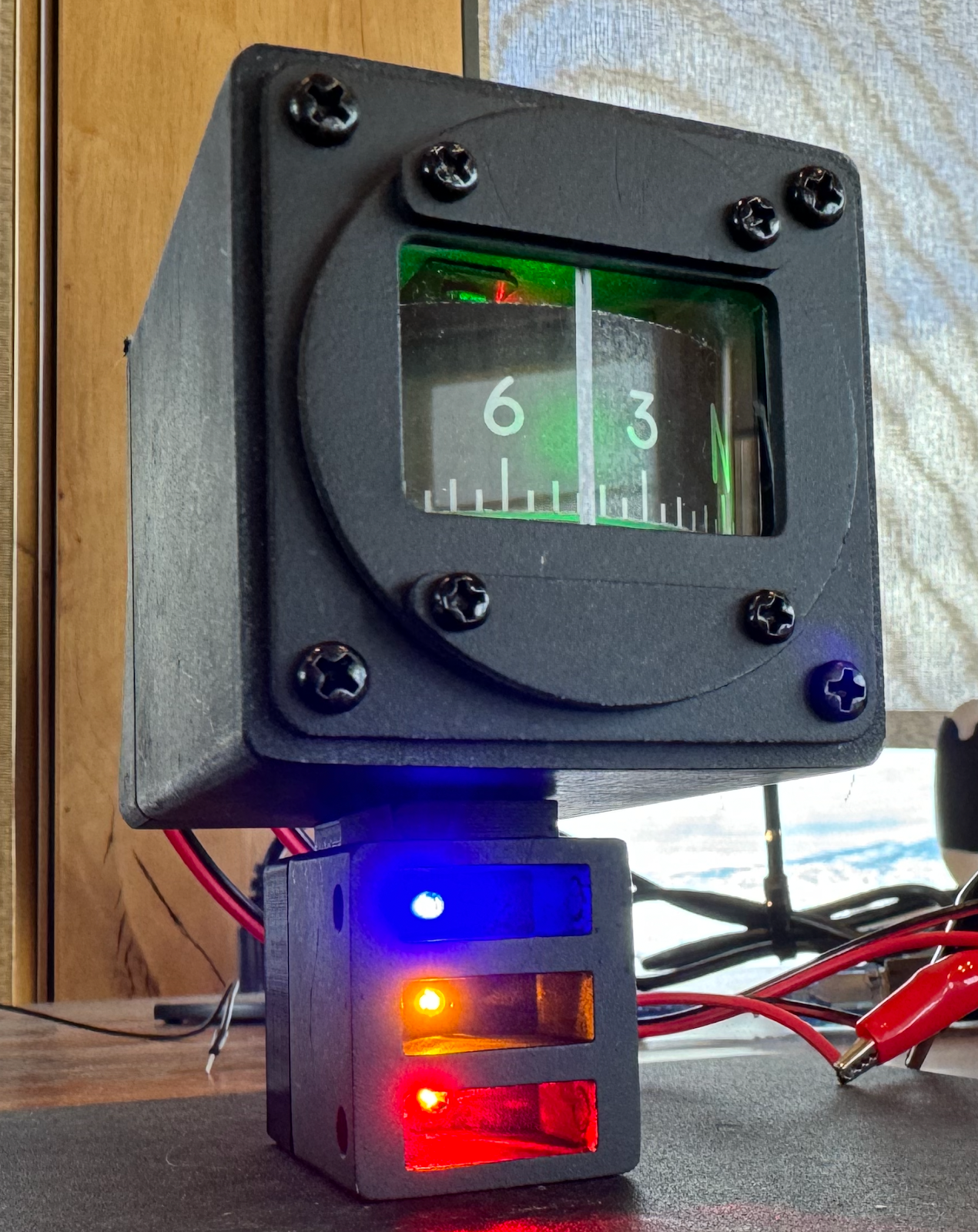Annual Drop-Off
I took the plane over to GMU for our annual inspection today. On the way over I went through a couple of engine test procedures that Savvy MX, our maintenance advisors, want recorded every once in a while.
The first is a GAMI Lean test. This one has you start with the mixture around 100 degrees rich of peak (ROP) EGT (exhaust gas temperature) and slowly, over 3-4 minutes, leaning the mixture until the engine gets rough. Then you slowly reverse the process and richen back to 100 ROP. Once the plot of this is viewed online, you can see how different the fuel flows were when each of the 6 cylinders peaked and went lean, etc.
This helps find and debug problems with fuel nozzles or the induction system. For instance, if one cylinder's fuel injector is injecting slightly less fuel than it should be, that cylinder will go "peak" sooner than the rest. For smooth operation when running lean of peak (which offers best economy and range) you want the cylinders to experience peak EGT at roughly the same fuel flow. If not, one cylinder could be too lean to fire properly while yet another is still at peak pressure and being worked too hard.
The second test I ran was a lean-of-peak magneto check. This has you leaning the mixture until the engine starts to get a touch rough and then running it with only one magneto on. Each magneto is firing a single spark plug in each cylinder. Normally you are running two magnetos, each firing a spark in each cylinder. This gives a better burn of the fuel and some redundancy.
In my test, running on only the left magneto for 60s showed only slightly rough operation and 2 backfires. On the right only I saw similar slight roughness and no backfires, but some slight power fluctuations up and down. Savvy is going to take a look at the data to see if there is an issue worth investigating.
The first is a GAMI Lean test. This one has you start with the mixture around 100 degrees rich of peak (ROP) EGT (exhaust gas temperature) and slowly, over 3-4 minutes, leaning the mixture until the engine gets rough. Then you slowly reverse the process and richen back to 100 ROP. Once the plot of this is viewed online, you can see how different the fuel flows were when each of the 6 cylinders peaked and went lean, etc.
This helps find and debug problems with fuel nozzles or the induction system. For instance, if one cylinder's fuel injector is injecting slightly less fuel than it should be, that cylinder will go "peak" sooner than the rest. For smooth operation when running lean of peak (which offers best economy and range) you want the cylinders to experience peak EGT at roughly the same fuel flow. If not, one cylinder could be too lean to fire properly while yet another is still at peak pressure and being worked too hard.
The second test I ran was a lean-of-peak magneto check. This has you leaning the mixture until the engine starts to get a touch rough and then running it with only one magneto on. Each magneto is firing a single spark plug in each cylinder. Normally you are running two magnetos, each firing a spark in each cylinder. This gives a better burn of the fuel and some redundancy.
In my test, running on only the left magneto for 60s showed only slightly rough operation and 2 backfires. On the right only I saw similar slight roughness and no backfires, but some slight power fluctuations up and down. Savvy is going to take a look at the data to see if there is an issue worth investigating.
 |
| Graph during the two tests - from cirrusreports.com |

